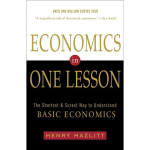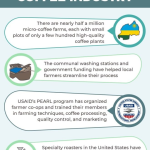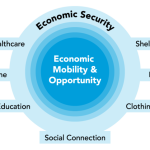Entrepreneurialism has become a defining force in today’s economy, reshaping how individuals approach work and career growth. This shift is exemplified by the rise of business founders, freelancers, and those engaged in side hustles, highlighting a move towards self-employment that prioritizes personal fulfillment and innovation. With the modern workforce increasingly embracing freelance work, the traditional 9-to-5 job is becoming less desirable for many. This transition reflects a broader cultural change where individuals seek to cultivate their own unique talents and entrepreneurial spirit. As we navigate this dynamic landscape, understanding the principles of entrepreneurialism becomes essential for anyone looking to thrive in a competitive job market.
At the heart of contemporary work trends lies the concept of entrepreneurship, often described as the pursuit of self-directed business ventures or initiatives. This approach also encompasses terms like self-employment and innovative side projects, which collectively contribute to the evolving narrative of work in the 21st century. As individuals increasingly explore various pathways to independence, they embody the roles of business founders and create opportunities within the modern workforce. The desire for autonomy and personal expression fuels this movement, encouraging many to break free from conventional employment structures. Thus, the landscape of work is rapidly changing, inviting new perspectives on what it means to be engaged in productive, meaningful activities.
Understanding Entrepreneurialism in the Modern Workforce
Entrepreneurialism has become a defining characteristic of the modern workforce, dramatically reshaping how individuals relate to work. In today’s economy, not only business founders are considered entrepreneurs; freelance workers, gig economy participants, and even those nurturing side hustles embody the entrepreneurial spirit. The rise of self-employment reflects a broader trend where the traditional nine-to-five job is increasingly viewed as limiting. Individuals are pursuing their passions and talents, crafting their career paths through innovative ventures, thus enriching their professional lives while promoting personal fulfillment.
Moreover, entrepreneurialism encourages a mindset oriented toward problem-solving and creativity. This shift has significant implications for how businesses operate, as the need for flexible, adaptive strategies becomes paramount. Organizations are not merely comprised of employees but are instead networks of individual entrepreneurs working collaboratively towards common goals. By fostering an environment that values entrepreneurial thinking, employers can harness unique ideas that contribute to their organization’s overall success. This evolution highlights a move away from rigid employment models toward a more dynamic and inclusive approach to labor.
The Rise of Self-Employment and Freelance Work
The surge in self-employment and freelance work has transformed the traditional labor market, providing individuals with opportunities to create their own jobs rather than seeking employment from established companies. This paradigm shift has been fueled by advances in technology and changes in consumer preferences, leading to a growing demand for niche services and personalized solutions. Many are opting for freelance work as it allows for greater flexibility and the chance to balance work and personal life more effectively. This trend is particularly appealing to younger generations who value experiences and autonomy over the stability of a conventional job.
Additionally, self-employment empowers individuals with the ability to tailor their careers to align with their interests and skills. For example, creative professionals, consultants, and service providers are leveraging platforms such as social media and digital marketplaces to market their services directly to consumers. This democratization of the workforce not only fosters independence but also promotes entrepreneurship by allowing individuals to build personal brands that resonate with their target audiences. As such, the rise of self-employment is redefining success in the modern economy, encouraging people to pursue their entrepreneurial aspirations, regardless of traditional barriers.
Exploring Side Hustles as a Path to Financial Freedom
Side hustles have emerged as a popular avenue for many individuals looking to enhance their financial security and explore their passions simultaneously. These supplementary income streams allow people to test new business ideas without committing to them fully, often serving as a testing ground for potential full-time ventures. The rise of the gig economy has made it easier for aspiring entrepreneurs to monetize their skills, whether through online tutoring, content creation, or artisanal crafts. This flexibility not only diversifies income sources but also fosters a sense of independence and personal growth.
Moreover, engaging in a side hustle can cultivate entrepreneurial skills that are invaluable in today’s job market. Individuals often benefit from learning how to market their services, manage finances, and network with clients and other professionals. This practical experience not only enhances their résumés but also builds confidence in their abilities to navigate the complexities of self-employment. As such, side hustles are not just supplementary income; they represent a critical component of the new workforce identity, which places a premium on creativity, resilience, and innovation.
The Role of Technology in Shaping Modern Entrepreneurialism
Technology plays a pivotal role in the evolution of entrepreneurialism, providing tools that enable individuals to launch and manage their ventures with unprecedented ease. The accessibility of digital platforms has democratized the entrepreneurial landscape, allowing anyone with a smartphone and internet connection to market their goods or services. From e-commerce websites to social media marketing, the resources available to new business founders are vast and varied. This technological empowerment fosters innovative thinking and lowers the barriers to entry for aspiring entrepreneurs.
Furthermore, technology’s impact extends beyond simply facilitating business operations; it also reshapes consumer expectations and interactions. Today’s consumers seek personalized experiences and immediate access to services, prompting entrepreneurs to adapt swiftly to changing demands. This fast-paced environment encourages continuous learning and agility, underscoring the entrepreneurial mindset essential for success. As technology continues to evolve, its influence on entrepreneurialism will likely grow, pushing more individuals toward self-employment and freelance opportunities.
Balancing Risk and Reward in Entrepreneurial Ventures
Entrepreneurial ventures inherently carry a blend of risk and reward, which often weighs heavily on the minds of individuals considering self-employment. The allure of being your own boss can be tempered by the financial uncertainties that accompany starting a business. Entrepreneurs must navigate challenges such as market competition, fluctuating demand, and the potential for failure. This constant balancing act requires resilience and strategic foresight, and those who succeed are often those who can effectively manage these risks while remaining flexible.
Moreover, understanding the psychological aspects of risk in entrepreneurship is crucial for maintaining a healthy mindset amid uncertainties. Many successful entrepreneurs advocate for embracing failure as part of the journey, viewing setbacks as learning experiences rather than obstacles. Building a support network of fellow entrepreneurs and mentors can provide valuable perspectives and encouragement during challenging times. Ultimately, fostering an attitude of perseverance and adaptability can empower individuals to thrive in their ventures despite inherent risks.
The Evolution of Job Markets and Entrepreneurial Spirit
The evolution of job markets has significantly fueled the rise of the entrepreneurial spirit, particularly in response to economic changes and technological advancements. As traditional employment models shift due to globalization and automation, more individuals are exploring entrepreneurial paths to secure their livelihoods. This transition has created a culture that celebrates innovation and encourages self-employment, allowing people to carve out unique roles that align with their skills and passions.
Additionally, historical shifts, such as the end of industrialization and the arrival of the information age, have underscored the necessity for adaptability in the workforce. The increasing prevalence of layoffs and job insecurities has prompted individuals to reassess their career strategies, leading many to pursue entrepreneurial endeavors. By redefining what it means to work and contribute, society is increasingly recognizing the value of entrepreneurial achievements, ensuring that the spirit of entrepreneurship remains a vital aspect of the American economic landscape.
Self-Help Literature’s Influence on Entrepreneurial Mindsets
Self-help literature has played a crucial role in shaping the entrepreneurial mindsets of countless individuals, providing motivational resources and practical advice for those looking to embark on their own ventures. Books that emphasize personal achievement and business strategies, such as Napoleon Hill’s classic, inspire readers to harness their unique talents for financial success. This literary movement has empowered individuals to shift their perspectives on work, transforming traditional notions of employment into opportunities for self-actualization through entrepreneurship.
Moreover, the rise of self-help literature parallels the increasing value placed on personal branding and individualism in entrepreneurial spaces. By encouraging readers to approach work as a reflection of their identity, these books help cultivate a culture that celebrates creativity and innovation in business. As more people seek out resources to guide their entrepreneurial journeys, the influence of self-help literature continues to reinforce the belief that anyone can create their own success story through diligence and self-awareness.
The Impact of Economic Trends on Entrepreneurial Aspirations
Economic trends play a significant role in shaping entrepreneurial aspirations, often driven by countless factors such as market conditions, technological advancements, and societal changes. For instance, during periods of economic downturn, many individuals turn to entrepreneurship as a last resort, seeking alternative paths to employment or income generation. This can lead to a surge in startups and small businesses, as laid-off workers leverage their skills and savings to create new opportunities for themselves.
Conversely, periods of economic prosperity can also stimulate entrepreneurial ambitions as consumer spending increases, providing fertile ground for new ideas and ventures. Entrepreneurs often find themselves at the forefront of innovation during these times, responding to emerging needs and trends. As the economy fluctuates, understanding these dynamics is crucial for aspiring entrepreneurs, who must learn to adapt their strategies and capitalize on the evolving market landscape.
How Intrapreneurship Enhances Organizational Dynamics
Intrapreneurship, the practice of fostering an entrepreneurial mindset within established organizations, has gained prominence as a means to enhance innovation and adaptability. Corporations are increasingly encouraging employees to act like entrepreneurs, allowing them the freedom to explore new ideas and lead initiatives without the constraints of traditional hierarchies. This approach not only empowers employees but also positions companies to respond more effectively to market changes and consumer demands.
By promoting a culture of intrapreneurship, organizations can harness the creativity and passion of their workforce, leading to the development of innovative products and services. This strategy not only boosts employee morale but also helps companies maintain a competitive edge in rapidly evolving industries. As the line between entrepreneurship and corporate environments continues to blur, embracing intrapreneurial practices will become crucial for organizations looking to thrive in the future.
Frequently Asked Questions
What role does entrepreneurialism play in self-employment opportunities?
Entrepreneurialism is crucial for self-employment, as it empowers individuals to establish their own businesses or freelance work. By embracing entrepreneurial values, individuals can leverage their skills and passions to create unique job opportunities, allowing them to operate independently and shape their own professional destinies.
How can side hustles enhance the entrepreneurial experience for business founders?
Side hustles can significantly enrich the entrepreneurial journey for business founders by providing additional income streams and fostering innovative thinking. Engaging in side projects allows founders to test new ideas, diversify their skill sets, and financially support their primary entrepreneurial ventures during growth phases.
What are the benefits of freelance work in the context of modern workforce entrepreneurialism?
Freelance work epitomizes modern workforce entrepreneurialism by offering flexibility and autonomy. It enables individuals to pursue diverse projects that align with their skills and interests, encouraging creativity while fostering a vibrant gig economy that supports personal and professional growth.
How has the perception of entrepreneurialism changed among young professionals?
The perception of entrepreneurialism among young professionals has shifted towards viewing it as a viable career path rather than a fallback option. With the rise of self-employment and gig economy jobs, many young individuals embrace entrepreneurialism as a pathway for achieving job satisfaction, personal fulfillment, and financial independence.
In what ways can understanding entrepreneurialism benefit aspiring business founders?
For aspiring business founders, understanding entrepreneurialism is essential as it equips them with the mindset and skills needed to navigate challenges and seize opportunities. By studying entrepreneurial principles, they can develop effective strategies for launching and scaling their ventures, enhancing their chances of success.
What challenges do individuals face in freelance work as a part of entrepreneurialism?
Freelance workers face several challenges within the framework of entrepreneurialism, including income instability, lack of benefits, and the need for self-discipline. Additionally, competition in the gig economy can be fierce, necessitating continuous skill development and effective self-marketing to thrive.
How can side hustles contribute to a culture of entrepreneurialism in the community?
Side hustles contribute to entrepreneurialism by fostering a culture of innovation and resilience within the community. They encourage individuals to pursue their passions, collaborate with others, and support local economies, ultimately creating a network of entrepreneurs that inspires further creativity and professional development.
What impact does the modern workforce have on the evolution of entrepreneurialism?
The modern workforce, characterized by flexibility and the rise of freelance work, has played a significant role in evolving entrepreneurialism. As traditional job structures change, more individuals adopt an entrepreneurial mindset, leveraging technology and global connectivity to create businesses that reflect their values and aspirations.
How can someone transition from corporate work to self-employment through entrepreneurialism?
To transition from corporate work to self-employment through entrepreneurialism, individuals should first identify their passions and skills. They can then create a business plan, build a network of support, and gradually take on freelance projects or side hustles to gain experience and confidence, ultimately paving the way for full-time self-employment.
What strategies can support individuals pursuing entrepreneurialism and freelance work?
Strategies to support individuals pursuing entrepreneurialism include continuous learning, networking with other entrepreneurs, leveraging social media for marketing, and setting clear goals. Additionally, investing in personal branding and time management skills can greatly enhance their effectiveness in freelance work and entrepreneurship.
| Key Concept | Description |
|---|---|
| Entrepreneurialism | A philosophy that emphasizes self-employment, innovative thinking, and the ability to turn one’s skills into a business opportunity. |
| Historical Context | The concept gained traction post-19th century industrialization, as demand for factory labor waned and the focus shifted to individual skills and entrepreneurial initiatives. |
| Cultural Shift | The rise of self-help literature in the 20th century promoted the idea of making one’s own job, inspiring a cultural shift towards valuing individual initiative and creativity. |
| Impact of Economic Changes | During economic downturns, entrepreneurial efforts often surge as individuals pursue freelance or ‘odd jobs’ to maintain financial stability. |
| Modern Implications | Today, entrepreneurialism promotes a continuous state of risk among individuals, pushing them to view themselves as business operators even in temporary or freelance roles. |
Summary
Entrepreneurialism has fundamentally shaped the modern workforce, shifting the focus from traditional employment to personal initiative and innovation. This evolving mindset reflects the societal transformation towards valuing self-creation and adaptability, particularly in response to economic challenges. As entrepreneurs navigate an uncertain landscape, they embody a continual quest for meaningful work and fulfillment, highlighting the intricate relationship between individual aspirations and the broader economy.










